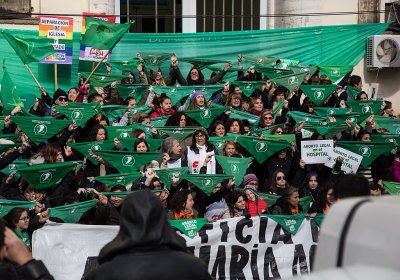The intensification of multiple, intersecting crises under capitalism, which are disproportionately affecting women, requires a united struggle against them, writes Reihana Mohideen.
Welfare
After many years of campaigning, Argentina’s feminist movements booked a historic victory when abortion was finally legalised, writes Virginia Tognola.
The severe Arctic blast and storms that hit the central part of the United States are another example of extreme weather due to climate change, writes Barry Sheppard.
The government intends to remove the pandemic supplement at the end of March as Jobseekers struggle to meet their basic needs, reports Kerry Smith
Indian farmers, who have been protesting for the past two months, have again made a stand against Prime Minister Narendra Modi’s agenda to privatise and corporatise the agricultural sector.
While Argentina just legalised abortion rights, it is prohibited or limited in most of Latin America, writes Tamara Pearson. For those forced to continue a pregnancy deprives them of agency, autonomy and well being.
John Pilger describes how class remains the most virulent disease in Britain, resulting in record levels of child poverty.
About 330,000 people will be pushed into poverty when the coronavirus supplement is cut again on January 1, writes Peter Boyle.
In response to the Rodrigo Duterte government's mishandling of the typhoon disaster response, left-wing coalition Laban ng Masa released this statement.
The Spanish Socialist Workers' Party/Unidas Podemos coalition government has launched its 2021 draft budget to great fanfare, writes Dick Nichols.
Jim McIlroy writes the federal government is moving to extend the stigmatising cashless debit card, handing responsibility for vulnerable sectors to a private company.
Prime Minister Jacinda Ardern’s personality is undoubtedly a factor in her appeal. But, politically, Ardern represents a form of centrist politics that has failed to address the challenges of our time, argues Ani White.
- Previous page
- Page 12
- Next page











